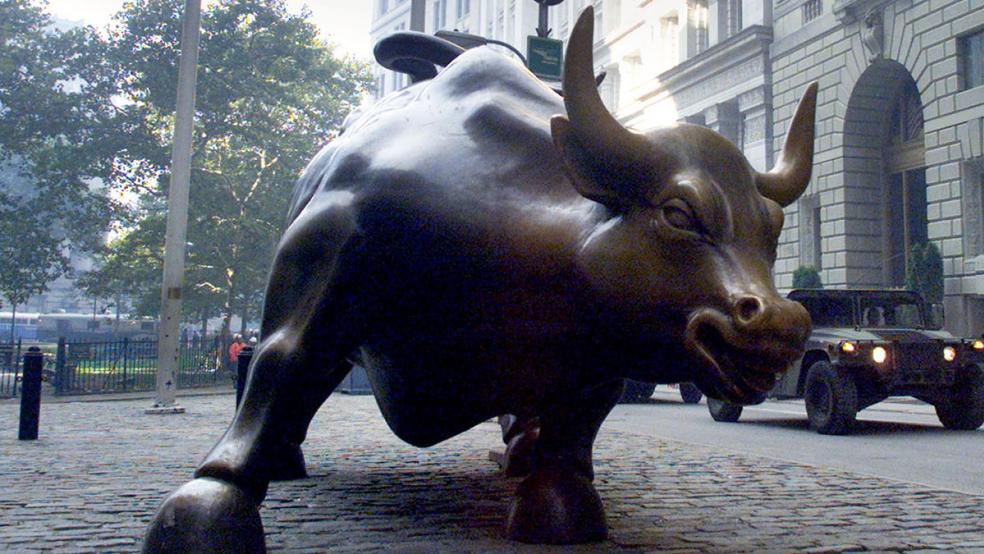Dow 19,000!
We’ve crossed that mark for the first time — and the S&P 500, Nasdaq Composite and Russell 2000 small-cap index are all at record highs as well. The last time all four major stock market averages hit new highs at the same time was December 31, 1999.
Wall Street could hardly be more excited as it looks ahead to the fiscal stimulus it expects to see from a Trump administration.
Never mind that a large percentage of the equity market isn't participating in the advance. Or that Trump's fiscal plans are expected to double the national debt. Or that interest rates have exploded higher on inflation fears.
Related: Why Wall Street Should Be Worried About Steve Bannon
Most importantly, stock bulls distracted by Trump are ignoring the rising policy hawkishness at the Federal Reserve — the purveyor of cheap money that's sustained this bull market since it began in 2009.
The market is predicting 95 percent odds of an interest rate hike before the end of the year. That kind of outlook would have jolted stocks in years past, when any odd mention of policy tightening by the Fed or a misspoken word by Fed Chair Janet Yellen would send stocks careening lower. Sensitivity approached satire, in many cases (remember Yellen's "six months" mistake?).
Now, nobody seems to care. Yellen is yesterday's news.
Related: Yellen Sends a Message to Trump: Hands Off Dodd-Frank
The bulls have found a new source of confidence, with Trump's fiscal plans and his outspoken support for a repatriation holiday leading Goldman Sachs to estimate an additional $200 billion in overseas cash will come home — $150 billion of which will be used for equity buybacks.
Nearly a decade after the financial crisis, we are at long last trading fiscal stimulus for monetary stimulus — but it may be too late.
Yellen warned Congress earlier this month that the economy was operating near its natural growth limit and that a big fiscal boost now would limit the options for fiscal stimulus should the economy suffer another shock. Philadelphia Fed President Patrick Harker warned that the pace of rate hikes could be accelerated should Trump enact his tax cut and spending plans — a sentiment echoed by Richmond Fed President Jeffrey Lacker.
Related: A Fed Rate Hike Will Hit 92 Million Americans Right in the Pocketbook
The shift in tone is clear.
Deutsche Bank economists in a note to clients this week highlighted that change, warning that while the post-financial crisis years have been marked by a Fed eager to support markets and the economy at every turn, the evidence was building that "the Fed is in the early stages of leaving this dovish regime behind and could take on a more hawkish stance going forward."
Already, the market expects two rate hikes in 2017, up from expectations for a single hike before Trump's electoral victory. In Deutsche Bank's view, this re-pricing has "room to run" and will likely result in more rate hikes being priced in.
Related: Who’s Being Left Behind by the Stock Market’s Trump Trade?
But an aggressive end to the greatest experiment with ultra-cheap money in human history isn't going to be painless — and that danger is being ignored. The interest rate hikes would put an end to a 34-year bull market in bonds. A repricing of risk across the entire spectrum of financial assets is coming. And it could upend the president-elect’s spending plans, as higher interest rates would put increased pressure on the national debt.
Trump, who was frequently critical of Yellen's low-rate regime on the campaign trail, may soon regret his calls for her to turn hawkish.






